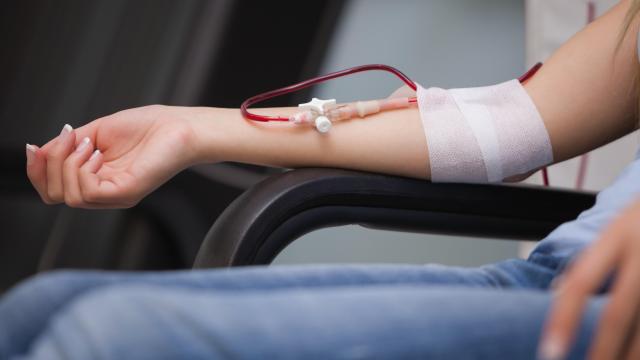A large new randomised clinical trial should put people who are ever in need of a blood transfusion more at ease. Scientists in Canada have found that the sex of a blood donor had no significant effect on the recipient’s chances of survival. Several past studies had suggested a possible risk, but this appears to be the first major research of its kind to examine the issue.
In recent years, there has been a growing interest in understanding possibly hidden risk factors that could affect the safety or effectiveness of donated blood used for transfusions. Some studies have indicated that a donor’s sex might be one of these factors, for instance, along with things like age and certain genetic traits. Yet others have shown no relationship between donor sex and poorer transfusion outcomes.
These studies have largely been observational and retrospective, meaning they look back in time to find possible associations between any two things. But while this type of research is important, it can’t demonstrate a cause-and-effect link on its own. So scientists at the Ottawa Hospital Research Institute and elsewhere decided to conduct a double-blinded, randomised trial — often considered the gold standard of clinical research — that would directly test the effects of donor sex on blood transfusions.
The study involved more than 8,000 patients at three hospitals in Canada who were enrolled between 2018 to 2020. These patients were set to receive red blood cell transfusions for any number of reasons regardless, but the researchers randomised the kind of blood they would get: About 5,000 patients received blood from donors identified as male, and another 3,000 would get blood from female donors. Afterward, they tracked the patients’ health for up to two years, focusing primarily on their survival rate.
Overall, the team found no difference in survivability between people who received male blood compared to female blood. They also found no difference across most other outcomes, such as the length of hospital stay for inpatients or a future risk of cancer. The one possible exception was a higher incidence of MRSA infection (a known problem in hospitals) for those given female blood.
“In this trial, we found no significant difference in survival between a transfusion strategy involving red-cell units from female donors and a strategy involving red-cell units from male donors,” the authors wrote in their paper, published Wednesday in the New England Journal of Medicine.
The authors note that blood transfusions are one of the most common types of procedures performed in hospitals, making their safety all the more important. And although no single study should be seen as the final word on a topic, these findings should carry more weight than others, especially given the size and design of the trial. Past observational studies that did find a link between donor sex and transfusion outcomes may have failed to fully account for other factors that biased the results, the authors say, such as differences in blood banking practices or the health of those receiving the blood.
The study’s findings have become even more relevant as of late. Last month on Twitter, Harry Potter author JK Rowling cited a study suggesting that people given transfusions of blood from the opposite sex were worse off and more likely to die, seemingly as part of a larger diatribe against transgender people. Many critics at the time noted the limitations of the study and that, contrary to Rowling’s assertion that it was a settled fact, other research hadn’t found a similar effect. Interestingly enough, the current study actually showed a lower risk of death for those who got “mismatched” blood — the exact opposite of Rowling’s specific claim — but the authors point out that this result should be interpreted with caution since it may simply be chance.
It’s certainly possible that future research could dispute the findings of this trial, but for now, it seems pretty likely that donated blood remains safe no matter the person’s sex.
